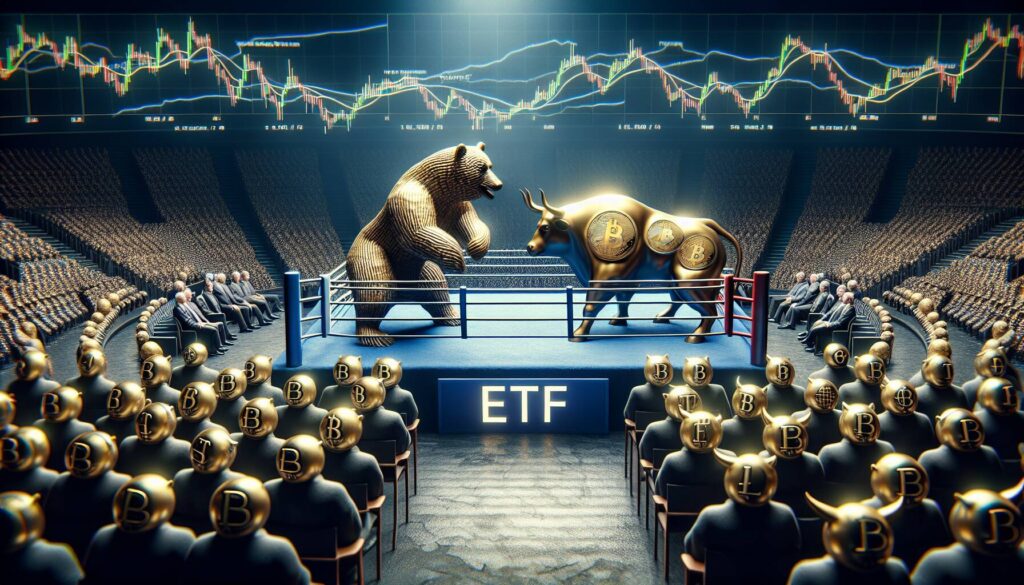In a significant development in the cryptocurrency landscape, DWF Labs has committed a robust $25 million investment in World Liberty Financial Inc. (WLFI), a decentralized financial protocol that is reportedly backed by former U.S. President Donald Trump and his family. This move reflects not only DWF’s confidence in the burgeoning crypto market but also its strategic expansion into the United States, as highlighted by the opening of a new office in New York City.
The press release issued on Wednesday outlined DWF Labs’ ambition to foster closer relationships with traditional financial institutions and engage directly with regulators in the U.S. By establishing a physical presence in America, DWF aims to enhance its workforce and intensify collaborations with local universities to bolster cryptocurrency education.
“DWF’s involvement is expected to accelerate the next-generation infrastructure we’re actively building and deploying at WLFI,”
said Zak Folkman, co-founder of WLFI. This partnership also includes a governance stake in the project from DWF Labs, particularly concerning WLFI’s forthcoming stablecoin, USD1. This stablecoin is designed to be backed by short-term U.S. Treasury bills, cash, and equivalents, positioning it as a secure option for investors.
With plans to provide liquidity for the USD1 ecosystem, DWF Labs will leverage its extensive trading infrastructure to facilitate activity across both centralized and decentralized platforms. The firm’s Managing Partner, Andrei Grachev, expressed optimism about the U.S. market, stating that their presence there underscores their belief in America being pivotal for the future growth of institutional crypto adoption.
As WLFI gears up to launch USD1, it aims to meet the increasing demands of both sovereign investors and large institutions looking for a stable and reliable digital currency alternative.

DWF Labs Investment in World Liberty Financial
The recent announcement of DWF Labs investing $25 million in World Liberty Financial (WLFI) highlights significant developments in the decentralized finance sector. Here are the key points:
- Investment Details:
- DWF Labs is investing $25 million in WLFI, positioning itself as a key player in decentralized finance.
- The investment includes acquiring a governance stake in the WLFI project, which will allow DWF to influence decision-making.
- Establishment of U.S. Office:
- DWF Labs is setting up an office in New York City as part of its expansion into the U.S. market.
- This move aims to enhance collaboration with traditional financial institutions and regulators.
- Liquidity Support:
- DWF Labs plans to provide liquidity for the upcoming USD1 stablecoin, which is backed by short-term U.S. Treasury bills and cash.
- The firm will utilize its trading infrastructure to facilitate transactions on both centralized and decentralized platforms.
- Focus on Education:
- DWF intends to strengthen ties with American colleges and universities to promote cryptocurrency education.
- Market Implications:
- Zak Folkman from WLFI believes DWF’s involvement will speed up the development of next-generation infrastructure.
- DWF’s expansion reflects confidence in the U.S. as a growth region for institutional crypto adoption, signaling potential growth in this sector.
Impact on Readers: As DWF Labs targets the growing decentralized finance sector and institutional adoption of cryptocurrencies, individuals interested in finance and technology may find new investment opportunities and educational resources becoming available. The development of USD1 as a stablecoin could also lead to shifts in how transactions are conducted in the financial ecosystem.
DWF Labs and World Liberty Financial: A Strategic Crypto Alliance
The recent news surrounding DWF Labs’ $25 million investment in World Liberty Financial (WLFI) signals significant movements in the decentralized finance sector, particularly with its strategic ties to a prominent figure like U.S. President Donald Trump. This partnership not only highlights DWF’s intentions to penetrate the U.S. market through a new office in New York City but also showcases an increasing legitimization of crypto initiatives within traditional financial frameworks. However, this venture brings both opportunities and challenges, particularly in relation to competitors in the crypto landscape.
Competitive Advantages: DWF’s proactive engagement with U.S. financial institutions may offer them a competitive edge in a rapidly evolving market. By establishing a physical office in New York, they can nurture closer relationships with regulators, enhancing their credibility and fostering trust among potential clients. Their strategic choice to invest in WLFI also positions them favorably, as USD1 is set to be a stablecoin designed for institutional adoption, catering directly to the growing demand from sovereign investors. This can potentially set DWF Labs apart from other crypto firms that lack such backing and governmental recognition.
Competitive Disadvantages: However, aligning with figures like Donald Trump can be a double-edged sword. While it may attract certain investors, it could also alienate others who prefer to steer clear of politically charged associations. Moreover, the decentralization ethos may clash with traditional financial structures, creating friction in the market as DWF attempts to bridge these worlds. Competition in the crypto space is fierce, and other players may leverage this to create narratives that counteract DWF’s initiatives, potentially slowing down their momentum.
Target Audience and Potential Issues: The target audience for DWF Labs and WLFI includes institutional investors keen on secure, compliant crypto investment opportunities. By promoting education in association with universities, DWF is aiming to capture an increasingly knowledgeable investor base that seeks transparency and security in decentralized finance. Nonetheless, as DWF attempts to navigate regulatory landscapes and competitor narratives, it may encounter resistance from both established financial institutions wary of disruption and crypto purists who value complete decentralization. This could pose challenges if not tactfully managed, as maintaining credibility while fostering innovation is key to winning over these diverse stakeholders.















